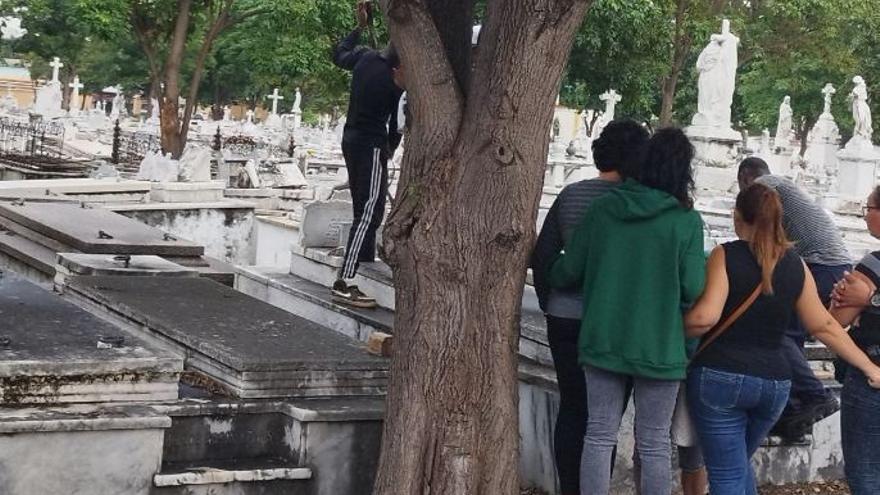
![]() 14ymedio/Yucabyte, Havana, 22 July 2023 — Surgeons operating in the middle of a blackout, a supposed reissue of the apartheid policy against Cubans in the hotels of the North Keys, and the threat to transfer the inmates of the Island to the most feared prison in Russia, mark the flow of rumors collected in June by Yucabyte and 14ymedio. As in the rest of the year, the comments and images published on social networks take the pulse of reality and subliminally express the concerns of Cubans.
14ymedio/Yucabyte, Havana, 22 July 2023 — Surgeons operating in the middle of a blackout, a supposed reissue of the apartheid policy against Cubans in the hotels of the North Keys, and the threat to transfer the inmates of the Island to the most feared prison in Russia, mark the flow of rumors collected in June by Yucabyte and 14ymedio. As in the rest of the year, the comments and images published on social networks take the pulse of reality and subliminally express the concerns of Cubans.
The Public Health crisis reached grotesque overtones in the reports of online posts, which shared multiple times the images of an operating room illuminated only by the flashlights of the doctors’ cell phones. Although the hospital or the nature of the intervention was not identified, the controversy over the effects of the energy crisis in cases of life and death did not wait.
Other rumors denounced that the Camilo Cienfuegos Clinical Surgical Hospital in Sancti Spíritus is part of a business that traffics blood bags – and other medical supplies – and that the healthcare workers demand payment of 5,000 pesos for each transfusion. Officially, the center affirms that it does not have blood reserves and the medical staff asks patients and relatives to arrange in advance the necessary quantities for the operations.
The theft of prostheses, especially hip replacements, has been the alleged motive for various incidents of grave desecration on the Island. Although the official press has admitted that criminals enter cemeteries to steal bones – usually for ritual purposes – and vandalize the graves, it is the first time that this type of crime has been linked to the sale of the prostheses of the deceased in the informal market.
Another important group of rumors captured during the month refers to the leak of an alleged letter about the “new policy for the sale” of reservations at the Angsana Cayo Santa María hotel. The document ordered that the sales be “closed to national clients,” alleging that it was not “discrimination” but “owners’ rules,” which seemed to indicate a return to the situation in force until 2008 when Cubans were prohibited from accessing hotel facilities. The rumor reached such a massive circulation that the Gaviota group, a subsidiary of the Cuban military conglomerate Gaesa, had to publish a statement to assure readers that a version of the hotel’s policy had been disseminated “with an editorial error.”
The suspicions about supposed secret agreements after Cuba’s rapprochement with Russia caused, once again, a flood of comments on the networks. It was said that the members of the Cuban Armed Forces carried out recruitment rounds in the basic secondary schools, so that the students choose to continue their studies in military schools.
Although these recruitments are carried out every year – on the eve of the end of the school year – this time the on-line posters raised suspicions about the possibility that the objective of the recruitment is to send young soldiers to the war in Ukraine.
Likewise, various rumors highlighted that Cubans facing serious criminal proceedings on the island may choose to participate as mercenaries on the battlefront, as an alternative to serving their sentence. In addition, the possible transfer to Russia of Cuban prisoners who are currently serving their sentences on the island was discussed. The objective: to lock them up, as additional punishment, in the IK-6 penal colony, the maximum security prison popularly known as Delfín Negro.
____________
COLLABORATE WITH OUR WORK: The 14ymedio team is committed to practicing serious journalism that reflects Cuba’s reality in all its depth. Thank you for joining us on this long journey. We invite you to continue supporting us by becoming a member of 14ymedio now. Together we can continue transforming journalism in Cuba.
